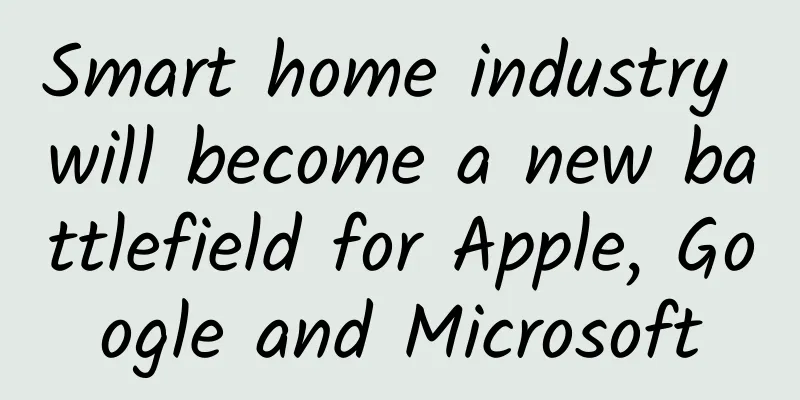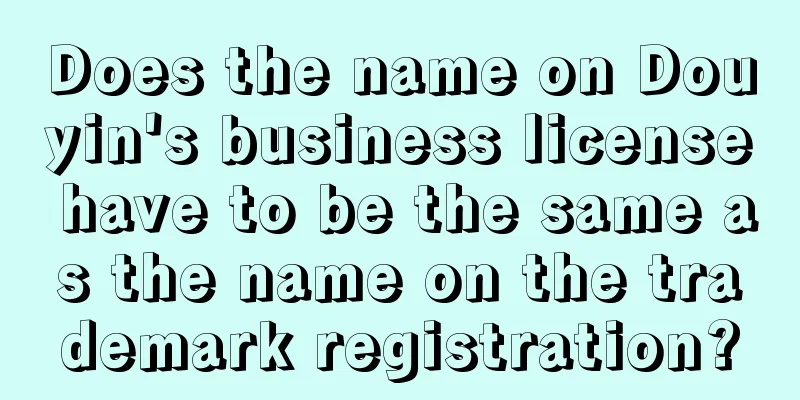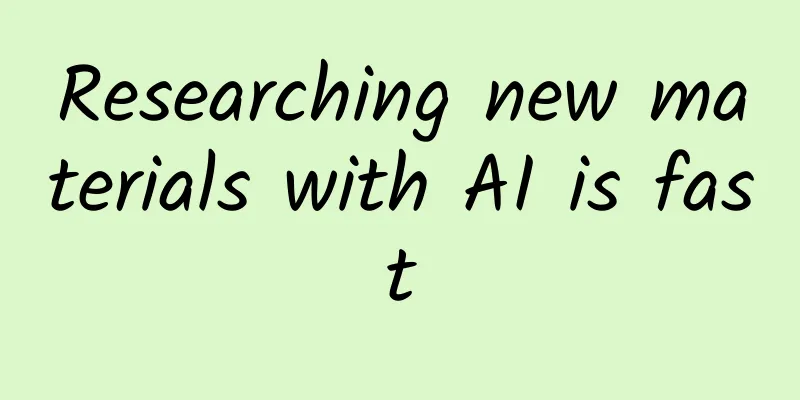Smart home industry will become a new battlefield for Apple, Google and Microsoft

|
The PC industry has been running slower and slower. Even if it turns its attention to more cutting-edge mobile devices such as smartphones, the increasingly lack of novelty in products is gradually unable to satisfy the discerning eyes of today's consumers. "Changing mobile phones" is no longer a "fashionable" behavior that everyone pursues. Who will be the new hot spot in the future technology industry? ? Popularizing the core thinking of "intelligence" to a wider field, it is not difficult to find that smart home may be the new trend of the times. At present, smart home products of various brands and uses have blossomed in domestic and foreign markets. As the leaders of the technology industry, Google, Apple, and Microsoft have become the powerful "promoters" behind this trend. Google: External manufacturers + Android ecosystem From now on, Google's acquisition of smart home manufacturer Nest for US$3.2 billion at the beginning of the year is still a milestone. It not only broadened Google's product research and development field, bringing it into the smart home world first, but also truly put smart homes on an equal footing with other smart products. Since acquiring Nest, Google has not stopped its steps to cooperate with smart home manufacturers. In early September, Google acquired the smart health technology company Lift Labs. The founder and some core employees of Lift Labs will also join Google's life science team, a department in the Google X research and development laboratory, which will be committed to creating smart hardware for health and medical purposes. After being acquired by Google, Nest itself has not been idle. In July this year, it acquired the DropCam home IP surveillance camera company for US$555 million. During the CEDIA Expo held in Colorado, it announced the official support of DropCam devices, adding another powerful partner to Google's smart home device list. For Google, Nest not only manufactures products, but also is a platform. Specifically, Nest will provide API interfaces through its Web open platform, allowing third-party developers to create software, hardware, services, etc. and connect them with smart home products. This coincides with the "open" thinking of Google's Android ecosystem. As for Android itself, Google is also constantly building a new development blueprint with an integrated thinking. It is not difficult to see from this year's Google I/O conference that whether it is mobile phones, watches, TVs, or cars, Google continues to emphasize the connectivity of different products through the Android system. On the road to smart homes, this will inevitably produce twice the result with half the effort. Apple: Taking the first step with HomeKit Apple's new iOS8 mobile operating system is about to be released. The new system has little visual change from iOS7. The real new thing, in addition to HealthKit for the health field, is the newly added software development kit HomeKit, which is also an important initiative of Apple for the smart home industry. Compared with Google, Apple has many similar advantages in the development of smart homes. For example, both have accumulated a large number of users and mobile smart devices with the help of their own intelligent operating platforms. In terms of voice recognition technology, both Google Now and Apple's Siri will become an important part of user interaction of smart home products. However, Apple's more closed and standardized software development environment is undoubtedly a more preferred ecological environment for developers, which will also make the adaptation of smart home products to Apple's smart terminals much simpler and more stable. Unique technologies such as Touch ID fingerprint recognition will also bring more expanded usage scenarios to Apple's smart home layout. In addition to device unlocking, Apple Pay has made Touch ID a payment tool, which is an advantage that other platforms do not have. Of course, the advent of the smart home era and HomeKit has not yet allowed us to see Apple air conditioners or Apple refrigerators, but relying on Apple's strong brand appeal, traditional home appliance manufacturers will not miss this opportunity to take advantage of it. Among the first batch of home appliance manufacturers announced by Apple to access HomeKit, in addition to foreign companies such as Philips and Honeywell, there is also a Chinese home appliance manufacturer Haier. From this point of view, HomeKit's entry into China seems to be smoother than iPhone 6. Microsoft: Making every effort to reverse the decline in smart home The former industry giant has suffered setbacks in the era of mobile intelligence. Faced with this situation, Microsoft has also begun to invest heavily in the smart home market, hoping to gain an advantage in the future. In May this year, Microsoft took the lead in putting the smart products of home automation technology company Insteon on the Microsoft Store. Subsequently, Microsoft also officially announced the establishment of an incubator for startups focusing on home automation and the Internet of Things. So far, the project has accepted and invested in ten smart home startups, including smart security manufacturer Novi Security and gesture control device manufacturer Reemo. The main reason why Microsoft did this is to compete with Apple and Google in the field of smart homes. But the earlier disadvantages still seem to be insufficient to give Microsoft's smart home strategy enough hope. Ordinary hardware startups, due to limited resources, will still give priority to connecting to the iOS and Android ecosystems and providing their own services to mainstream mobile phone users. Although smart home platforms such as Nest are apparently compatible with the three major systems, their Windows Phone version has remained at version 1.0 for almost a year. In comparison, the iOS version has been updated to 4.1, and Nest has long been acquired by Google. On the other hand, Microsoft has always wanted to make Xbox an entertainment control center for smart homes, so in the past two years, there have been more and more other content in Xbox, such as videos and education sections in the Chinese version. However, the number of audiences for a game console is obviously not comparable to that of Android or iOS smartphones. In the field of smart terminals, Microsoft's Windows has not been able to integrate mobile devices well, and basic problems have not been solved, so there will be more obstacles to smart home products. Who can seize the commanding heights of smart home? From Microsoft in the PC era to Apple and Google in the mobile world, the future smart home field is unlikely to be a competition among just three giants, but it is still possible that these three will be the first to start the war. In general, the premise for Microsoft to seize the initiative is to fill the previous remaining loopholes. Although Apple and Google are evenly matched in the mobile field, it ultimately depends on who can put their ideas into practice. In this regard, Google's actions are faster. In addition, we cannot ignore the existence of other potential competitors. After acquiring smart home manufacturer SmartThings for US$200 million, Samsung announced in August that it had acquired the US air conditioning dealer Quietside in full to further advance its market share in the smart home field. In new fields where industry standards are not yet mature, hardware manufacturers also hope to be the first to enter. From this point of view, the future world of smart homes is destined to be a fascinating drama of competition among many heroes. As a winner of Toutiao's Qingyun Plan and Baijiahao's Bai+ Plan, the 2019 Baidu Digital Author of the Year, the Baijiahao's Most Popular Author in the Technology Field, the 2019 Sogou Technology and Culture Author, and the 2021 Baijiahao Quarterly Influential Creator, he has won many awards, including the 2013 Sohu Best Industry Media Person, the 2015 China New Media Entrepreneurship Competition Beijing Third Place, the 2015 Guangmang Experience Award, the 2015 China New Media Entrepreneurship Competition Finals Third Place, and the 2018 Baidu Dynamic Annual Powerful Celebrity. |
<<: Is the Moto 360 really that good?
>>: Smart TV: Don’t let intelligence become a “burden”
Recommend
IDE for React Native Development
I'm currently using Atom and Nuclide. Althoug...
Eating meat and dumplings during the Spring Festival is a spiritual "partner", why do people become smelly after eating them?
When eating meat or dumplings at home during the ...
XDA released a useful full-screen gesture app for Android: No ROOT required
With the addition of native gesture operation in ...
These 4 overnight dishes are too dangerous. It is best to throw them away if you can't finish them.
It is said that "thrift is a traditional vir...
As the "evil twin" of the Earth, is Venus born with a hot "physique"?
Author: Huang Xianghong Duan Yuechu In the search...
Antarctica is turning green! The icy and snowy landscape is disappearing at an accelerated rate | Environmental News
Hello everyone, this is the 20th issue of the Env...
Playing with Douyin, from 0 to 1, from attracting fans to making money...
“ Tik Tok in the south, Kuaishou in the north”! W...
Is it difficult to convert users into promotion? Catering to the fun point is the key
With the development of information flow advertis...
Feeling sleepy right after eating? You have been officially diagnosed with "carbon dizziness" on the Internet...
After a big meal, you feel sleepy Lying in bed an...
I love you, China!
Sunrise in the East Knock on the Sky File photo: ...
An aerial "warrior" with a "phoenix head" but wearing a "diaper"?
The bird of prey in diapers: the crested eagle Re...
What’s so good about Zhang Xiaolong’s big move, WeChat Mini Program?
On December 28, Zhang Xiaolong, the father of WeC...
The faster the speed, the weirder the behavior? Maybe there is a problem with the coordination function
As you age, do you have this problem: when you re...
How to do foreign trade promotion? Here are 4 effective promotion channels
Most of our friends can tell you a thing or two a...
Android, a dirty way to get all the photos in a girl's phone album...
1. When I saw this title, I inexplicably wanted t...









